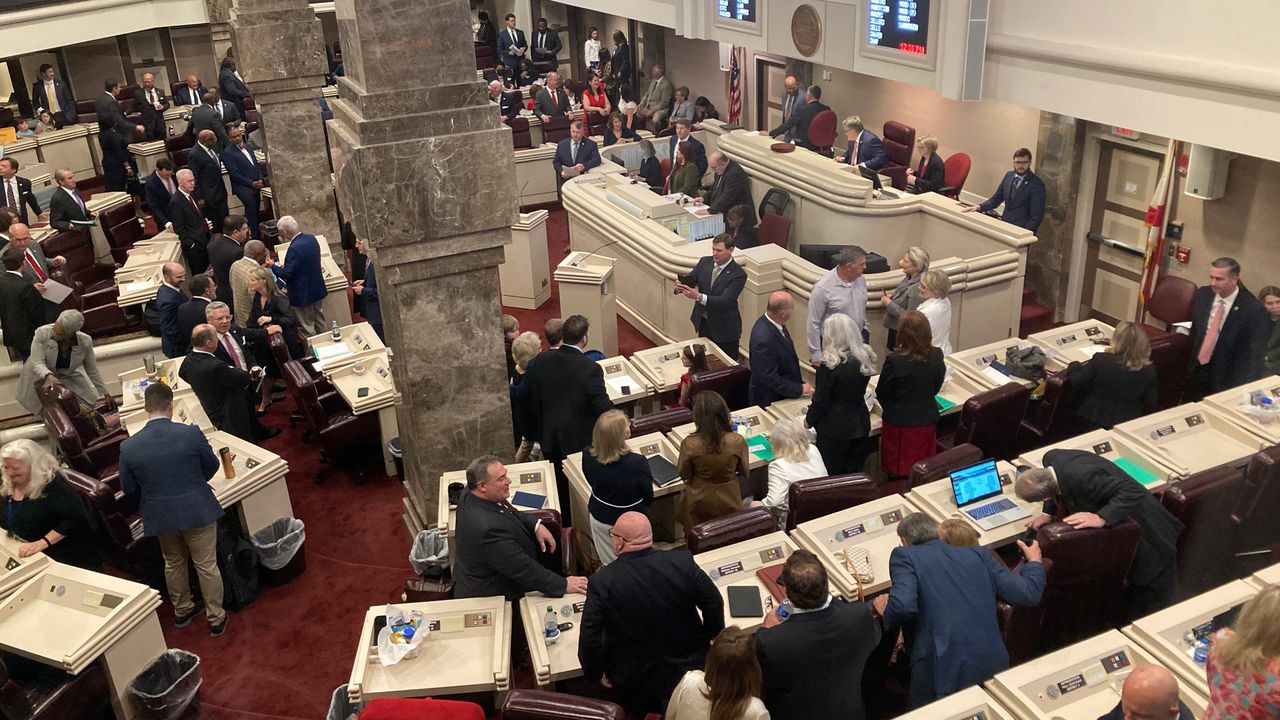Alabama AG Steve Marshall backs bill to crack down on gangs
Crimes caused by gang activity would result in longer prison sentences under legislation scheduled for consideration this week in the Alabama State House.
Attorney General Steve Marshall is backing the bill that he said would help police and prosecutors confront the violence and property crimes caused by gangs. Marshall said he is working alongside the Republican sponsors of the bill, Rep. Allen Treadaway of Jefferson County, former assistant chief of the Birmingham Police, and Sen. Will Barfoot, a Montgomery attorney.
Treadaway’s bill is up for consideration Wednesday in the Alabama House Judiciary Committee. This is the sixth week of the legislative session, which can last for 15 weeks.
Marshall said the bill has two main objectives, to enhance sentences for crimes committed to support or promote a criminal gang, and to require minimum prison terms for carrying or using a gun during a gang-related crime.
Marshall spoke about the problem recently on Alabama Public Television’s Capitol Journal. The attorney general said violent crime is rising in cities and rural areas and said he has heard from mayors about the influence of gangs. Marshall noted that Birmingham Mayor Randall Woodfin publicly called for a truce in gang activity after five people were shot to death on a Friday and Saturday in September.
“If you’re a gang member engaged in gang activity resulting in crime, then we ought to enhance that punishment to create that deterrent effect for those that want to engage in this behavior,” Marshall said on Capitol Journal. “If you’re going to engage in criminal activity with a gang and you’ve got a gun, we’re going to make sure you serve a minimum amount of time.”
The bill would apply to acts committed to benefit, promote, or further the interest of a gang, which is defined as three or more people working in an alliance to engage in a pattern of criminal activity. The bill creates a definition of gang member and increases the penalties for their crimes.
If a gang member commits a Class A felony, the most serious category, they would serve at least 25 years in prison. If they committed a Class B, C, or D felony, they would be bumped up to the next highest category.
Any person who has a gun while doing any act to benefit or promote a gang would serve at least five years in prison, and 10 years if the weapon was fired during the act. The bill carries enhanced penalties for certain weapons like short-barreled shotguns and rifles and machine guns.
The bill also requires minors 16 or older to be prosecuted as an adult if they commit crimes to benefit gangs. State law already requires minors 16 and older to be tried in adult court if they are charged with a capital offense, other crimes involving serious injuries, and drug trafficking.
Besides the bill on gang activity, legislators are proposing other bills that will result in longer prison sentences. Last week, Gov. Kay Ivey signed into law a bill to require mandatory prison time for possession of one gram or more of pure fentanyl, the drug that is the leading cause of overdose deaths. A bill to reduce how much time state inmates can shave off their sentences by “good time,” or following the rules while in prison, will be a priority in the House this week, Speaker Nathaniel Ledbetter said. The Senate passed that bill in March. The Alabama District Attorneys Association is backing legislation to increase the penalties for gun possession by those barred from having guns because of a felony conviction and for using guns while committing violent crimes. Prosecutors also want to increase penalties for some lower-level felonies.
The calls for tougher criminal sentences come as Alabama contends with allegations by the federal government that its prisons hold men in conditions that violate the Constitution and with the rising costs of the correctional system, including the cost of new prisons.
Read more: Alabama’s billion-dollar prison plan does not end the overcrowding
Alabama Senate passes restrictions on ‘good time’ prison sentence reductions
Alabama prosecutors want mandatory prison for felons who violate gun prohibitions
